
The Academy is a 5-year-old social club that’s bringing a refreshed sense of community to the storied Castro neighborhood.
Through the picture window at The Academy (www.academy-sf.com) in San Francisco’s Castro District, you can admire what is perhaps the city’s handsomest barber’s chair. Gleaming with silver chrome and peacock blue leather, it rotates on a floor of white hexagonal tiles. A velveteen drape obscures a larger room beyond this tableau, piquing one’s curiosity. Clearly, this is no SuperCuts.
Though you actually can make an appointment for an old-fashioned shave and a haircut here, tonsorial services are little more than a tangent to The Academy’s overall mission. Rather, it’s the warm camaraderie and lively conversation evoked by the notion of a vintage barbershop, a welcoming place to hang out, shoot the breeze, catch up on gossip, do a little networking, that encapsulates the purpose of The Academy, a 5-year-old social club that’s bringing a refreshed sense of community to this storied neighborhood.
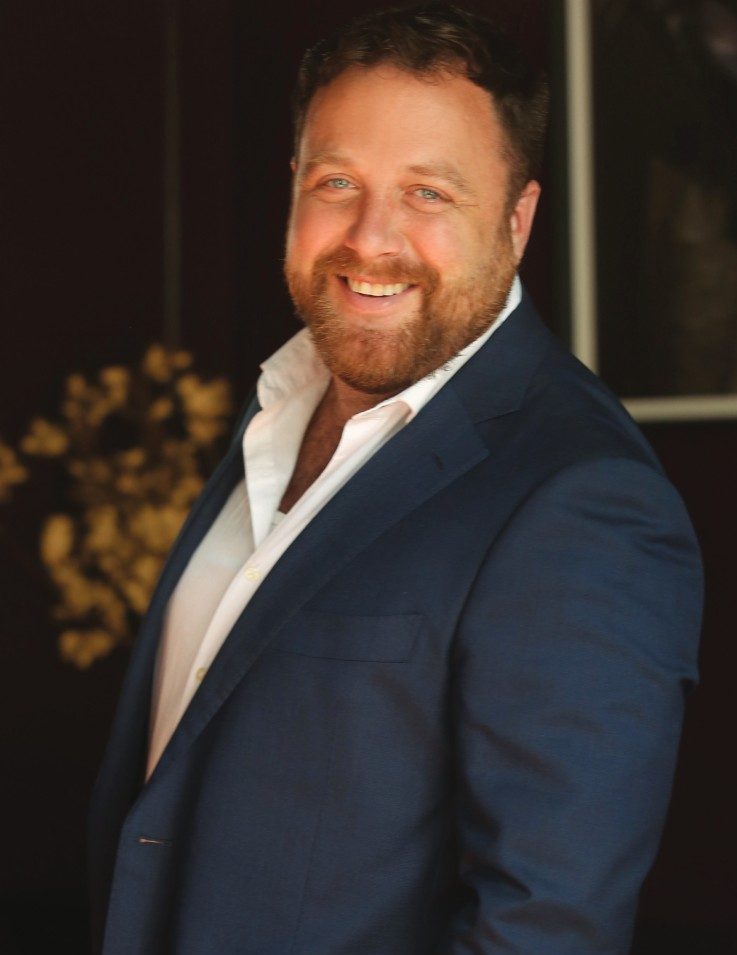
Paul MIller
“I grew up in San Francisco,” says Academy co-proprietor Paul Miller, “from a pretty young age, I would come to the Castro. There was a sense of identification with the neighborhood, it was a place where you felt comfortable being an openly gay person.”
That’s a sentiment shared and saluted by LGBTQ travelers from around the world. They flock to visit the former blue collar neighborhood that evolved into a cradle for the gay rights movement in the 1970s, a crucible of pain and political activism at the height of the AIDS crisis in the 1980s and early ‘90s, and more recently the site of massive rallies in support of same-sex marriage.
Come to the Castro as a tourist, and you can check out a small queer history museum, Gilbert Baker’s original Rainbow Flag, the famous Castro movie theater, the storefront once occupied by Harvey Milk’s camera shop, and a series of sidewalk plaques honoring cultural pioneers from James Baldwin to Frida Kahlo. And, of course, you can enjoy a raucous night hopping among the neighbor hood’s more than a dozen thumping gay bars.
But for longtime locals like Miller and his business partner Nate Bourg (previously a public relations specialist and events organizer with the San Francisco Symphony) there are only so many times you can gawk at the penis-shaped pastries at the Hot Cookie bakery or peruse the lube selection at boutiques like Rock Hard and Does Your Mother Know?
“I’d been visiting the Castro for my whole life,” says Miller, explaining the origins of The Academy. “But it got to the point where, if you’d already eaten and weren’t looking to go drinking there really wasn’t that much to do.”
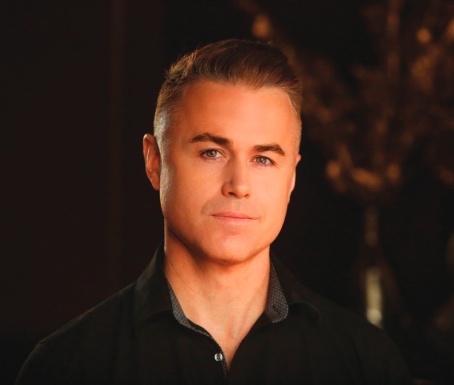
Nate Bourg
Bourg agrees. Having grown up in the East Bay suburb of Pleasanton, over an hour’s commute to the Castro via public transportation, he recalls being drawn to the Castro as a young adult, knowing its reputation as a hub of gay social life. But after spending the afternoon people-watching at Dolores Park and perhaps grabbing a beer or two at the bars, “it was like what choices do I have?” says Bourg. “Hang around at a bar for hours?”
“When Paul started talking to me about the idea of creating a sort of clubhouse, I got it right away. It could be like having a home away from home in the Castro.” And what a home it is.
The Academy’s building at 2166 Market Street, ten minutes’ walk from the heart of the Castro, has a storied past. It’s housed a restaurant, a leather bar, a sex club, and a watch and clock repair shop which closed in 2015, leaving most of the property vacant and in disrepair by the time Miller and Bourg were introduced to it the following year. During The Academy’s first two years in operation, from 2017-2019, it shared the building with an insurance office, but has since taken over that space to become the sole occupant.
Supported by a small group of investors who shared their vision of a low-cost membership club that would serve as a community incubator, Miller and Bourg have gradually overhauled the building’s entire interior as well as an expansive outdoor space that for years had been little more than a junkheap, overgrown with weeds and vines.
Today, if you pull back the drape behind that tiny street-facing barbershop, you’ll find a swank parlor, flatteringly lit and full of comfortably upholstered sitting areas. The walls are hung with works by local queer artists, which rotate in and out by the month. Up a flight of stairs is a warren of jewel box rooms ideal for small group gatherings, each as beautifully appointed as the next in variations on an overall style that might be called Boutique Hotel Lobby Eclectic. In the cellar is another lounge, this one with a speakeasy motif and its own set of nooks and grottos for a quiet catch-up or impromptu game of backgammon.
Out back, invisible to the surrounding streets, is a patio oasis, with cabana-like awnings for the sunniest summer afternoons, heat lamps and firepits for San Francisco’s typically chilly nights, and a welcome sense of escape within the city.
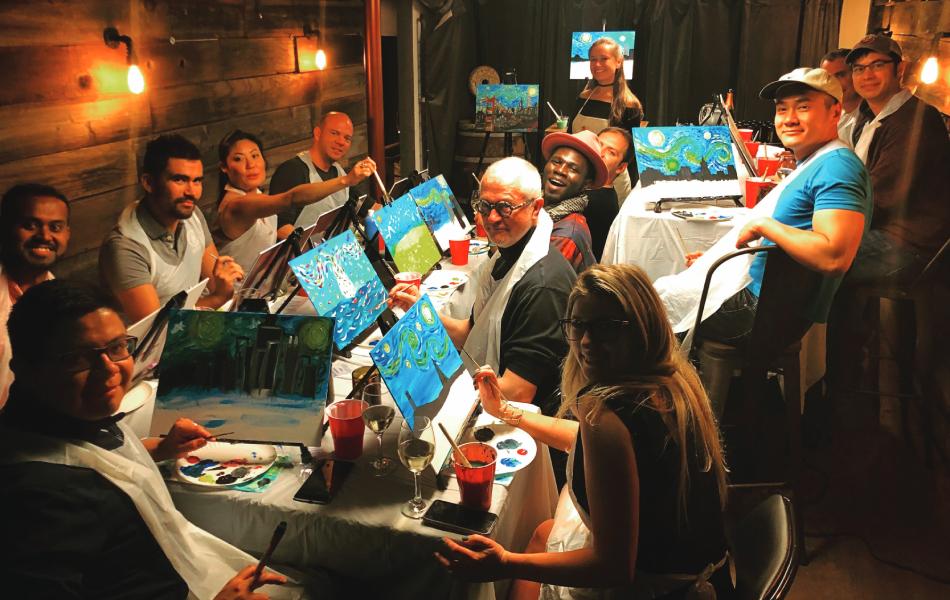
Painting Class at the Academy
On any given evening, some of these areas are animated with organized activities from figure drawing classes to book groups, guest lectures, wine tastings, and more. But most of the time, these rooms serve to cultivate informal conversations and connections among the Academy’s approximately 400 members, an eclectic group, largely gay men and a strong contingent of lesbians, whose common denominators are the desire to expand their social circles and share a mutual sense of belonging.
Starting at $125/month for San Franciscans and $45/month for those who live more than 30 miles away, memberships are intentionally priced similarly to many local gyms. “Scholarships” are available to would-be members of limited means “with particular emphasis,” the club’s website notes “on individuals involved in outstanding work in the LGBTQ+ community, the arts, public service, education and charitable causes.”
“We didn’t want to have the usual business model that pressures people to keep spending money in order to spend time together,” explains Miller, an experienced nightlife promoter who owned two gay bars earlier in his career. “Our idea was to create a place where what you were paying for was the experience of being there.”
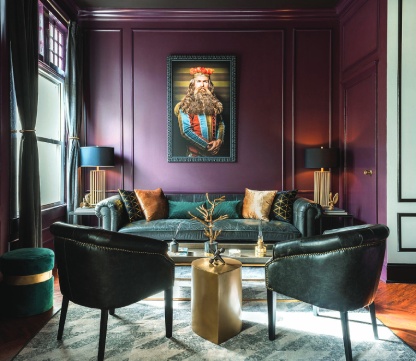
Academy Lounge
Members are welcome to bring as many as five guests each evening at no charge, and the full party can enjoy a complementary round of well drinks and unlimited soft drinks. In response to member requests, top shelf alcohol and a selection of wines curated by sommelier/consultant Michael Wells have also been made available for purchase, but there is never a hard sell.
As a significant booster to membership fees and beverage sales, The Academy makes its stylish spaces available for rental by Bay Area businesses hosting off-site meetings and events. Major companies, including SalesForce, have hosted functions here that have effectively helped underwrite the club’s ongoing ability to serve its everyday members.
“This really isn’t the business you’d create if you were like, ‘How can I make the most money?’” says Miller. “But I’ve always been a sort of believer in the idea that if I want something to exist and it doesn’t, I might as well create it. This is sort of a passion project.”
Passion, or at least lust, has also fueled some of Miller’s earlier endeavors, including Truck, a down-and-dirty dive bar known for invitation-only anything goes party nights.
“What I want out of my own social life has certainly changed over time,” Miller says. “With The Academy, I’m realizing different parts of my personality and my ambitions.”
One of those ambitions, he says is “to fight against the notion that queer men and women always prefer to socialize separately. That’s not how I grew up. Not in my family and not in my friend groups. Part of what reinforces that idea though, is that so many of the places where gay men meet and socialize are sexually charged, and I can understand why that can feel unwelcoming to women. And to be honest, that charged bar environment is not what gay men are looking for all the time either.”
“At the Academy, all of our members expect a vibe that’s very different than it is at the gay bars a few blocks away.”
“If I sit down next to you at a bar and start talking to you, odds are that after 15 minutes or so, you’re probably going to either make excuses to leave because you don’t want to lead me on, or you’re going to start imagining that I’m interested in you. It’s just not very easy to meet people without an agenda in that environment. But The Academy is a great place to do that. You’re expected to have interesting conversations with people you don’t know here!”
And you’re expected to conduct those conversations with openness and respect. Members sign agreements forbidding unwanted physical contact and are seriously cautioned to avoid bullying of all kinds, including sexism, classism, and ageism. While it may initially strike some as juvenile to be warned against bullying, it sets a tone from the outset which members then make a genuine effort to uphold.
“I think it’s really just important to officially put that stuff in writing and for us to model what kind of an environment we want to have here,” says Miller. “If we never said anything, then other people would be deciding what those conventions were going to be and what that sort of etiquette was going to be. And I think it works. We’ve had so much niceness and peace here over the past five years. I’ve heard of clubs that have rules where you’re not supposed to discuss certain topics, like politics or religion. We didn’t feel like we had to limit it that way, but for the staff and for the members, I just want us all to remember that our shared goal is to be welcoming to other people, regardless of who they are.”
The result is an environment where gay men and lesbians, Millennials and Boomers, struggling artists and established tech execs feel comfortable engaging with each other over common interests rather than avoiding, or shying away, from each other due to superficial differences.
Among the most obvious common interests Academy members share is queer culture, which has become a central element of some of the club’s most popular formal programming.
While a typical Wednesday through Saturday evening will find 30 to 40 members and their guests casually socializing throughout the Academy, special community events can attract as many as five times that (the general public is often invited to attend for a fee).
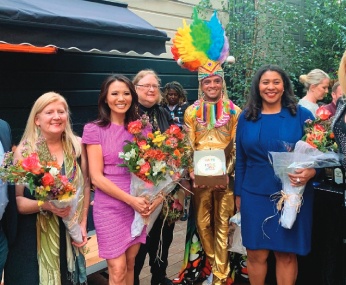
Mayor Breed Celebration
The Academy has hosted a presentation by the parents of Matthew Shepard, discussing the ongoing work of the advocacy organization they founded in his honor. London Breed, the mayor of San Francisco has appeared at the Academy, as have numerous state and local government officials and candidates seeking community support and policy input. The Academy has organized historic walking tours of the Castro neighborhood, welcomed speakers on cultural and current events topics, and hosted authors, in-person and via Zoom, at their monthly book group which focuses on titles of queer interest.
Most prominently, the Academy has established the Legends Awards Program, acknowledging role models and pioneers in the San Francisco queer community in a highly publicized annual ceremony that serves to educate and inspire club members, and the public, by highlighting these figures’ accomplishments and the causes they support. Each year, the recipient of the Legends Archive Award is asked to contribute a few items of personal memorabilia which are then placed on permanent display at the club, along with an explanatory plaque, creating a constant reminder of community forebears. Archive Award recipients to date have been Sister Roma, of the Sisters of Perpetual Indulgence; grassroots activist and drag personality Juanita More!; and Dr. Tim Seelig, longtime artistic director and conductor of the San Francisco Gay Men’s Chorus.
“Maybe this is grandiose,” says Miller, “but I hope that for some of our younger members, the Academy can help fill in some of the missing pieces of gay culture. There are certainly queer kids out there who make a conscious effort to learn about our community’s history, but there are plenty of 24-year-olds who can easily find their local gay bar or hook up through an app but who never learn about everything that came before them other than what they might see on Will & Grace or Drag Race. At the Academy, you can have a good conversation with someone from another generation and not worry about being hit on in a way you don’t want. Obviously, its important that we’re enticing enough to get you to come in without feeling like this is an educational institution that’s meant to teach you lessons.
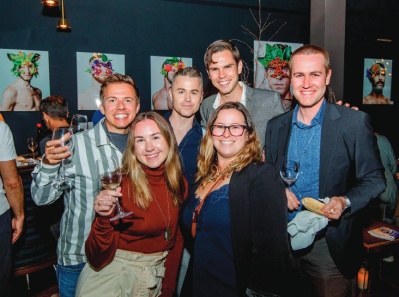
Academy Gathering
But whether through casual chats over wine, open-to-the-public gay history slide shows, queer trivia quizzes or sing-alongs featuring songs from across the decades, lessons are there for the taking, and friendships for the making.
“Its pretty common,” says Bourg, “that people from out of town who come in with a local friend end up asking if we’d consider having a branch in their town. And we realize how much people appreciate being part of the Academy when members who are moving away ask if we might sometime open in New York, or D.C. People have even offered to help support us financially if we’d open in their city.”
In fact, says Miller, he and Bourg had long been hoping to open another Academy’ chapter beyond San Francisco, even making some scouting trips shortly before the pandemic. But over the past two years, funds that had been set aside for expansion were put back into the original location, finishing more spaces, including the outdoor seating areas that proved a lifeline for the club and its community during the pandemic.
“Things are going really well again here now,” Miller notes, citing a lively nightly buzz and the Academy’s recent opening during daytime hours for members who work remotely. “I think we’re lucky to not have been trying to run a second operation in a different city during corona, but we definitely have successful proof of concept.”
Now, as expansion plans come back into focus, Chicago is at the top of the list, but Miller and Bourg are always happy to hear suggestions. And they welcome community-minded queer entrepreneurs from elsewhere to visit and draw inspiration from the original Academy. Open minds are required; haircuts are optional.
You May Also Like
The Best Day Trips From San Francisco
Hotel Therapy: San Francisco’s Hotel Nikko
The post THE ACADEMY FOSTERING COMMUNITY IN SAN FRANCISCO appeared first on Passport Magazine.
THE ACADEMY FOSTERING COMMUNITY IN SAN FRANCISCO
The Academy is a 5-year-old social club that’s bringing a refreshed sense of community to the storied Castro neighborhood.
Through the picture window at The Academy (www.academy-sf.com) in San Francisco’s Castro District, you can admire what is perhaps the city’s handsomest barber’s chair. Gleaming with silver chrome and peacock blue leather, it rotates on a floor of white hexagonal tiles. A velveteen drape obscures a larger room beyond this tableau, piquing one’s curiosity. Clearly, this is no SuperCuts.
Though you actually can make an appointment for an old-fashioned shave and a haircut here, tonsorial services are little more than a tangent to The Academy’s overall mission. Rather, it’s the warm camaraderie and lively conversation evoked by the notion of a vintage barbershop, a welcoming place to hang out, shoot the breeze, catch up on gossip, do a little networking, that encapsulates the purpose of The Academy, a 5-year-old social club that’s bringing a refreshed sense of community to this storied neighborhood.

Paul MIller
“I grew up in San Francisco,” says Academy co-proprietor Paul Miller, “from a pretty young age, I would come to the Castro. There was a sense of identification with the neighborhood, it was a place where you felt comfortable being an openly gay person.”
That’s a sentiment shared and saluted by LGBTQ travelers from around the world. They flock to visit the former blue collar neighborhood that evolved into a cradle for the gay rights movement in the 1970s, a crucible of pain and political activism at the height of the AIDS crisis in the 1980s and early ‘90s, and more recently the site of massive rallies in support of same-sex marriage.
Come to the Castro as a tourist, and you can check out a small queer history museum, Gilbert Baker’s original Rainbow Flag, the famous Castro movie theater, the storefront once occupied by Harvey Milk’s camera shop, and a series of sidewalk plaques honoring cultural pioneers from James Baldwin to Frida Kahlo. And, of course, you can enjoy a raucous night hopping among the neighbor hood’s more than a dozen thumping gay bars.
But for longtime locals like Miller and his business partner Nate Bourg (previously a public relations specialist and events organizer with the San Francisco Symphony) there are only so many times you can gawk at the penis-shaped pastries at the Hot Cookie bakery or peruse the lube selection at boutiques like Rock Hard and Does Your Mother Know?
“I’d been visiting the Castro for my whole life,” says Miller, explaining the origins of The Academy. “But it got to the point where, if you’d already eaten and weren’t looking to go drinking there really wasn’t that much to do.”

Nate Bourg
Bourg agrees. Having grown up in the East Bay suburb of Pleasanton, over an hour’s commute to the Castro via public transportation, he recalls being drawn to the Castro as a young adult, knowing its reputation as a hub of gay social life. But after spending the afternoon people-watching at Dolores Park and perhaps grabbing a beer or two at the bars, “it was like what choices do I have?” says Bourg. “Hang around at a bar for hours?”
“When Paul started talking to me about the idea of creating a sort of clubhouse, I got it right away. It could be like having a home away from home in the Castro.” And what a home it is.
The Academy’s building at 2166 Market Street, ten minutes’ walk from the heart of the Castro, has a storied past. It’s housed a restaurant, a leather bar, a sex club, and a watch and clock repair shop which closed in 2015, leaving most of the property vacant and in disrepair by the time Miller and Bourg were introduced to it the following year. During The Academy’s first two years in operation, from 2017-2019, it shared the building with an insurance office, but has since taken over that space to become the sole occupant.
Supported by a small group of investors who shared their vision of a low-cost membership club that would serve as a community incubator, Miller and Bourg have gradually overhauled the building’s entire interior as well as an expansive outdoor space that for years had been little more than a junkheap, overgrown with weeds and vines.
Today, if you pull back the drape behind that tiny street-facing barbershop, you’ll find a swank parlor, flatteringly lit and full of comfortably upholstered sitting areas. The walls are hung with works by local queer artists, which rotate in and out by the month. Up a flight of stairs is a warren of jewel box rooms ideal for small group gatherings, each as beautifully appointed as the next in variations on an overall style that might be called Boutique Hotel Lobby Eclectic. In the cellar is another lounge, this one with a speakeasy motif and its own set of nooks and grottos for a quiet catch-up or impromptu game of backgammon.
Out back, invisible to the surrounding streets, is a patio oasis, with cabana-like awnings for the sunniest summer afternoons, heat lamps and firepits for San Francisco’s typically chilly nights, and a welcome sense of escape within the city.

Painting Class at the Academy
On any given evening, some of these areas are animated with organized activities from figure drawing classes to book groups, guest lectures, wine tastings, and more. But most of the time, these rooms serve to cultivate informal conversations and connections among the Academy’s approximately 400 members, an eclectic group, largely gay men and a strong contingent of lesbians, whose common denominators are the desire to expand their social circles and share a mutual sense of belonging.
Starting at $125/month for San Franciscans and $45/month for those who live more than 30 miles away, memberships are intentionally priced similarly to many local gyms. “Scholarships” are available to would-be members of limited means “with particular emphasis,” the club’s website notes “on individuals involved in outstanding work in the LGBTQ+ community, the arts, public service, education and charitable causes.”
“We didn’t want to have the usual business model that pressures people to keep spending money in order to spend time together,” explains Miller, an experienced nightlife promoter who owned two gay bars earlier in his career. “Our idea was to create a place where what you were paying for was the experience of being there.”

Academy Lounge
Members are welcome to bring as many as five guests each evening at no charge, and the full party can enjoy a complementary round of well drinks and unlimited soft drinks. In response to member requests, top shelf alcohol and a selection of wines curated by sommelier/consultant Michael Wells have also been made available for purchase, but there is never a hard sell.
As a significant booster to membership fees and beverage sales, The Academy makes its stylish spaces available for rental by Bay Area businesses hosting off-site meetings and events. Major companies, including SalesForce, have hosted functions here that have effectively helped underwrite the club’s ongoing ability to serve its everyday members.
“This really isn’t the business you’d create if you were like, ‘How can I make the most money?’” says Miller. “But I’ve always been a sort of believer in the idea that if I want something to exist and it doesn’t, I might as well create it. This is sort of a passion project.”
Passion, or at least lust, has also fueled some of Miller’s earlier endeavors, including Truck, a down-and-dirty dive bar known for invitation-only anything goes party nights.
“What I want out of my own social life has certainly changed over time,” Miller says. “With The Academy, I’m realizing different parts of my personality and my ambitions.”
One of those ambitions, he says is “to fight against the notion that queer men and women always prefer to socialize separately. That’s not how I grew up. Not in my family and not in my friend groups. Part of what reinforces that idea though, is that so many of the places where gay men meet and socialize are sexually charged, and I can understand why that can feel unwelcoming to women. And to be honest, that charged bar environment is not what gay men are looking for all the time either.”
“At the Academy, all of our members expect a vibe that’s very different than it is at the gay bars a few blocks away.”
“If I sit down next to you at a bar and start talking to you, odds are that after 15 minutes or so, you’re probably going to either make excuses to leave because you don’t want to lead me on, or you’re going to start imagining that I’m interested in you. It’s just not very easy to meet people without an agenda in that environment. But The Academy is a great place to do that. You’re expected to have interesting conversations with people you don’t know here!”
And you’re expected to conduct those conversations with openness and respect. Members sign agreements forbidding unwanted physical contact and are seriously cautioned to avoid bullying of all kinds, including sexism, classism, and ageism. While it may initially strike some as juvenile to be warned against bullying, it sets a tone from the outset which members then make a genuine effort to uphold.
“I think it’s really just important to officially put that stuff in writing and for us to model what kind of an environment we want to have here,” says Miller. “If we never said anything, then other people would be deciding what those conventions were going to be and what that sort of etiquette was going to be. And I think it works. We’ve had so much niceness and peace here over the past five years. I’ve heard of clubs that have rules where you’re not supposed to discuss certain topics, like politics or religion. We didn’t feel like we had to limit it that way, but for the staff and for the members, I just want us all to remember that our shared goal is to be welcoming to other people, regardless of who they are.”
The result is an environment where gay men and lesbians, Millennials and Boomers, struggling artists and established tech execs feel comfortable engaging with each other over common interests rather than avoiding, or shying away, from each other due to superficial differences.
Among the most obvious common interests Academy members share is queer culture, which has become a central element of some of the club’s most popular formal programming.
While a typical Wednesday through Saturday evening will find 30 to 40 members and their guests casually socializing throughout the Academy, special community events can attract as many as five times that (the general public is often invited to attend for a fee).

Mayor Breed Celebration
The Academy has hosted a presentation by the parents of Matthew Shepard, discussing the ongoing work of the advocacy organization they founded in his honor. London Breed, the mayor of San Francisco has appeared at the Academy, as have numerous state and local government officials and candidates seeking community support and policy input. The Academy has organized historic walking tours of the Castro neighborhood, welcomed speakers on cultural and current events topics, and hosted authors, in-person and via Zoom, at their monthly book group which focuses on titles of queer interest.
Most prominently, the Academy has established the Legends Awards Program, acknowledging role models and pioneers in the San Francisco queer community in a highly publicized annual ceremony that serves to educate and inspire club members, and the public, by highlighting these figures’ accomplishments and the causes they support. Each year, the recipient of the Legends Archive Award is asked to contribute a few items of personal memorabilia which are then placed on permanent display at the club, along with an explanatory plaque, creating a constant reminder of community forebears. Archive Award recipients to date have been Sister Roma, of the Sisters of Perpetual Indulgence; grassroots activist and drag personality Juanita More!; and Dr. Tim Seelig, longtime artistic director and conductor of the San Francisco Gay Men’s Chorus.
“Maybe this is grandiose,” says Miller, “but I hope that for some of our younger members, the Academy can help fill in some of the missing pieces of gay culture. There are certainly queer kids out there who make a conscious effort to learn about our community’s history, but there are plenty of 24-year-olds who can easily find their local gay bar or hook up through an app but who never learn about everything that came before them other than what they might see on Will & Grace or Drag Race. At the Academy, you can have a good conversation with someone from another generation and not worry about being hit on in a way you don’t want. Obviously, its important that we’re enticing enough to get you to come in without feeling like this is an educational institution that’s meant to teach you lessons.

Academy Gathering
But whether through casual chats over wine, open-to-the-public gay history slide shows, queer trivia quizzes or sing-alongs featuring songs from across the decades, lessons are there for the taking, and friendships for the making.
“Its pretty common,” says Bourg, “that people from out of town who come in with a local friend end up asking if we’d consider having a branch in their town. And we realize how much people appreciate being part of the Academy when members who are moving away ask if we might sometime open in New York, or D.C. People have even offered to help support us financially if we’d open in their city.”
In fact, says Miller, he and Bourg had long been hoping to open another Academy’ chapter beyond San Francisco, even making some scouting trips shortly before the pandemic. But over the past two years, funds that had been set aside for expansion were put back into the original location, finishing more spaces, including the outdoor seating areas that proved a lifeline for the club and its community during the pandemic.
“Things are going really well again here now,” Miller notes, citing a lively nightly buzz and the Academy’s recent opening during daytime hours for members who work remotely. “I think we’re lucky to not have been trying to run a second operation in a different city during corona, but we definitely have successful proof of concept.”
Now, as expansion plans come back into focus, Chicago is at the top of the list, but Miller and Bourg are always happy to hear suggestions. And they welcome community-minded queer entrepreneurs from elsewhere to visit and draw inspiration from the original Academy. Open minds are required; haircuts are optional.
You May Also Like
The Best Day Trips From San Francisco
Hotel Therapy: San Francisco’s Hotel Nikko
The post THE ACADEMY FOSTERING COMMUNITY IN SAN FRANCISCO appeared first on Passport Magazine.


Post a Comment